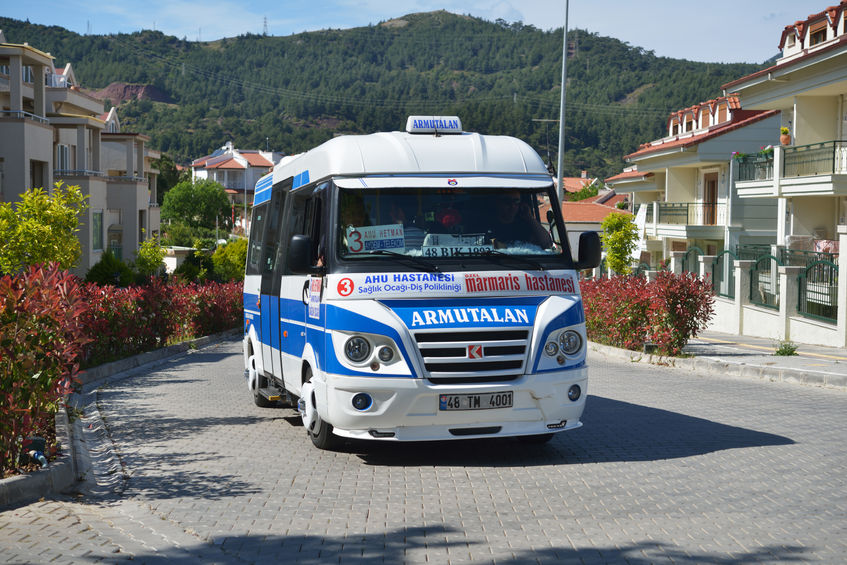
Two dolmuş in Bodrum, Turkey. Photo © Kenneth Wong, licensed Creative Commons Attribution No-Derivatives.
These communal taxis travel the streets between two defined stops, picking up and dropping off passengers on request. The rules of engagement are easy. Look for the dolmuş with your chosen destination written on its windshield or body and flag it down. There’s no need to walk to a defined stop or chase one down (unless you’re in Marmaris, which has designated stops). Generally, men should sit with men and women with women in more traditional areas, but often it’s a matter of getting in first for a seat. As you would back home, give up your seat for an elderly person, pregnant woman, and women with children. Enable older couples to sit together if seating is limited.
By law, the fare (which is rarely more than 5TL pp) must be posted in plain view, usually on the lower right side of the windshield. Pay the driver in cash directly at any stage of the journey or when requested. If you’re stuffed in the back, cash can be passed along between passengers to the driver, who can often be found maneuvering through traffic and collecting fares while talking on the phone.

Look for the destination on the windshield or body of the dolmuş. Photo © Lilyana Vynogrado/123rf.
Expect occasional odd looks in rural areas, especially if you’re traveling solo. These folks mean no harm—they’re usually curious to know why a foreigner would take the time to visit their hometown. When it’s time to stop, just shout out to the driver tamam captain (OK, captain), which usually does the trick for a yabancı (foreigner).
Hotels, tourism offices, and coach companies can inform you of the dolmuş routes near you and where to flag them down. Hop on board like a seasoned traveler and enjoy the ride.
Excerpted from the Second Edition of Moon Istanbul & the Turkish Coast.